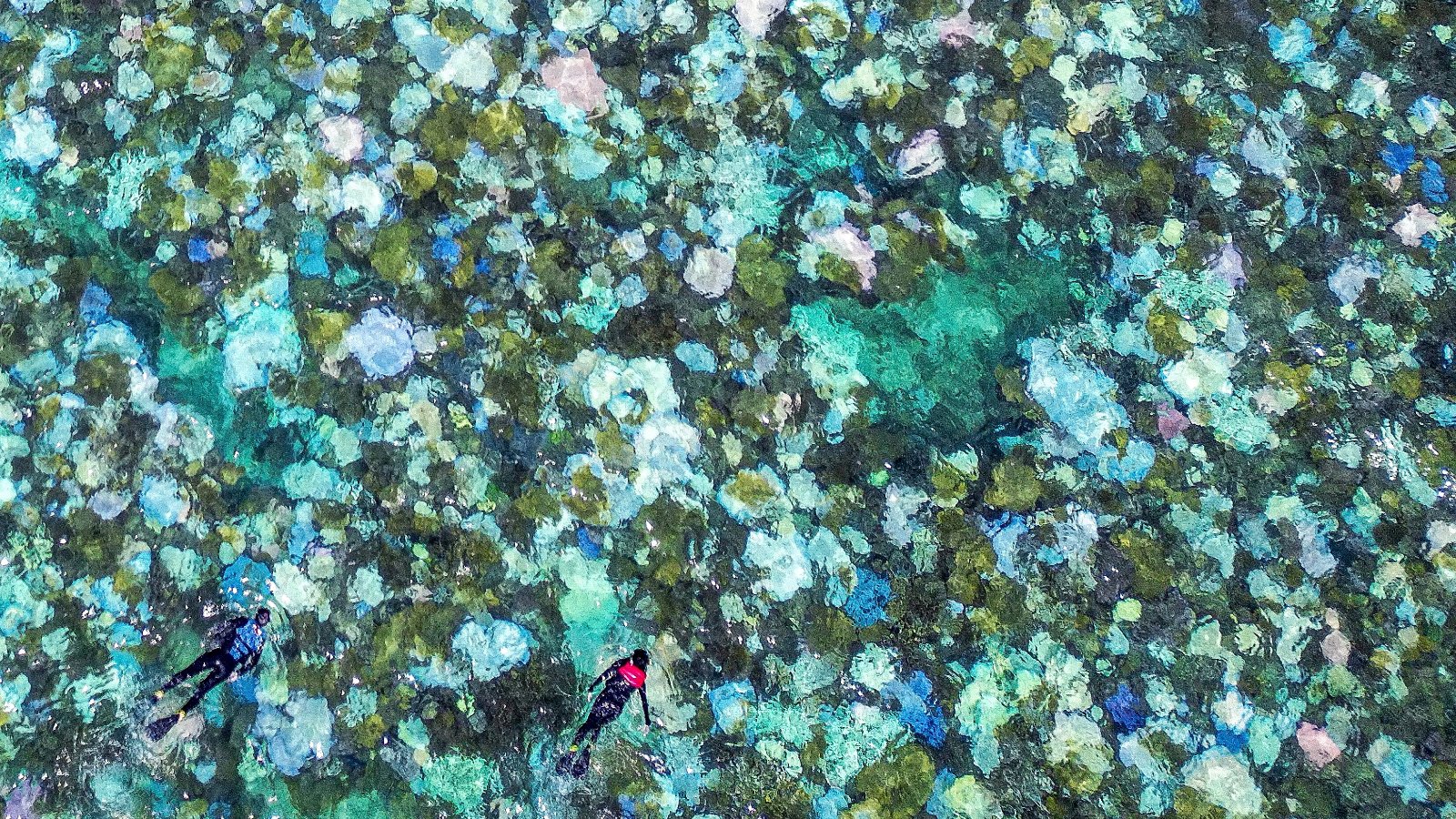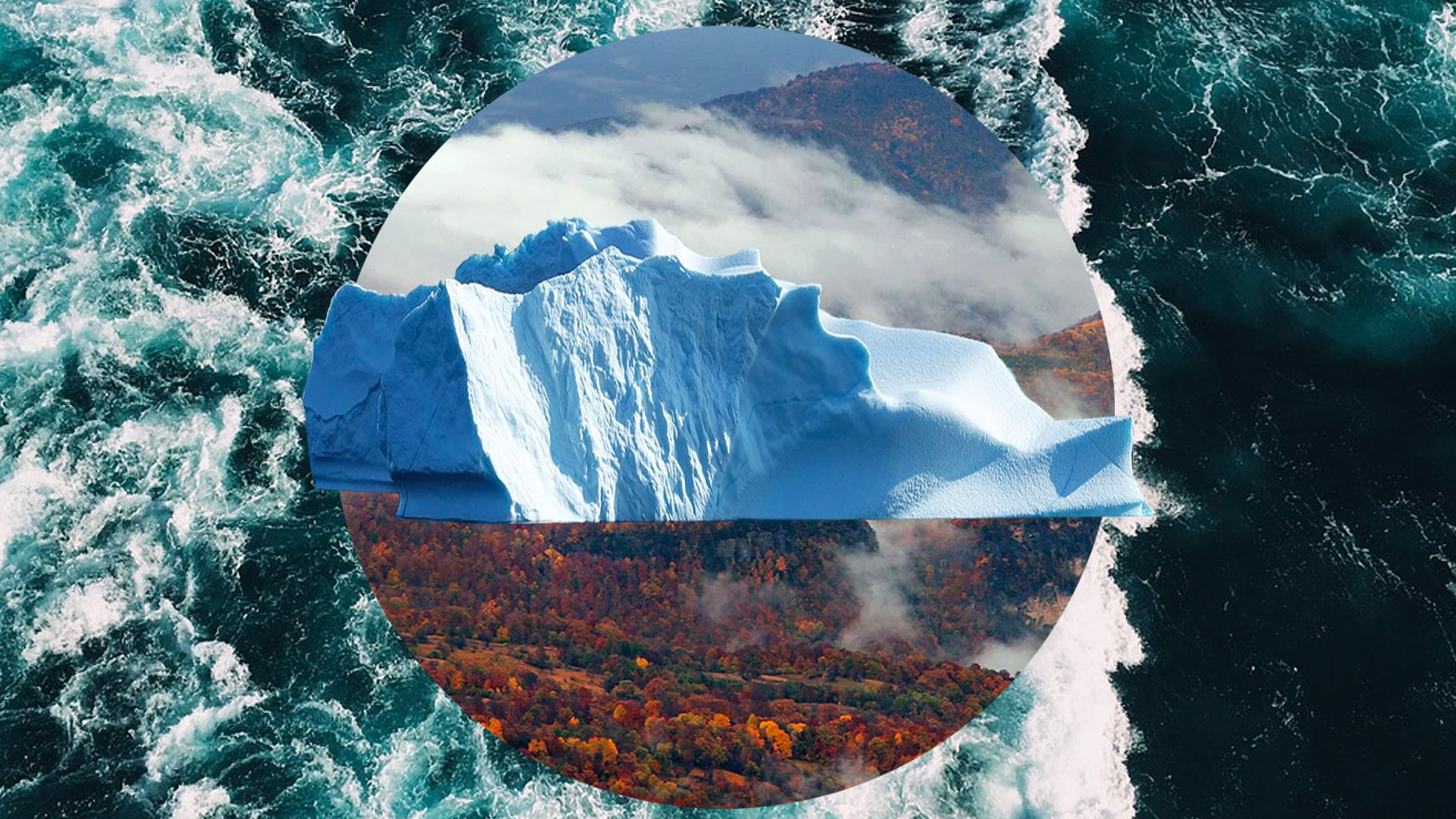Have the world’s coral reefs already crossed a tipping point?
A quarter of marine life depends on coral reefs. So do 1 billion people.
About a year ago, the seas got unusually hot, even by our current, overheated standards. Twelve months of broken records later, the oceans are still more feverish than climate models and normal fluctuations in global weather patterns can explain.
When the seas turn into bathwater, it threatens the survival of the planet’s coral reefs, home to a quarter of all marine life and a source of sustenance for many people living along the world’s coasts. Mostly clustered in the shallow waters of the tropics, coral reefs have one of the lowest thresholds for rising temperatures of all the possible “tipping points,” the cascading feedback loops that set off large, abrupt changes in the ecosystems, weather patterns, and ice formations on Earth. Stable, existing systems wind up in new, completely different states: The lush Amazon rainforest, for example, might collapse into a grassy savanna. Coral reefs might transform into seaweed-smothered graveyards.
Earlier this month, the world officially entered its fourth — and probably worst — mass coral bleaching event in history, according to the National Oceanic and Atmospheric Administration and the International Coral Reef Initiative. Hot water causes corals to expel the tiny algae that live in their tissues, which provide them with food (through photosynthesis) and also a rainbow of pigments. Separated from their algae, corals “bleach,” turning ghostly white, and start to starve.
The Florida Keys, where water temperatures veered into hot-tub territory last year, saw its most severe bleaching event to date, with scientists “evacuating” thousands of corals to tanks on land. In Australia, the iconic Great Barrier Reef is also facing its biggest test yet. In the Indian Ocean, even coral species known to be resistant to hot temperatures are bleaching.
“This is one of the key living systems that we thought was closest to a tipping point,” said Tim Lenton, a professor of climate change and Earth systems at the University of Exeter in the United Kingdom. “This is sort of horrible confirmation that it is.”
An estimated 1 billion people around the world benefit from coral reefs, which provide food and income, while also protecting coastal property from storms and flooding. The benefits add up to about $11 trillion a year. With some scientists worried that coral reefs may have already passed a point of no return, researchers are turning to desperate measures to save them, from building artificial reefs to attempts to cool down reefs through geoengineering.
Last year, the warmer weather pattern known as El Niño took hold of the globe, temporarily pushing global average temperatures to 1.5 degrees Celsius (2.7 degrees Fahrenheit) of warming over pre-industrial times. That’s precisely the level at which scientists have predicted that between 70 and 99 percent of tropical reefs would disappear. With a cooler La Niña phase on the way this summer, it’s possible that corals will make it through the current bout of hot ocean temperatures. But each week high temperatures persist, another 1 percent of corals are predicted to bleach. By the early 2030s, global temperatures are on track to pass the 1.5 C threshold for good, compared to around 1.2 C today.

Bleaching doesn’t spell certain death, but the corals that survive struggle to reproduce and are more susceptible to diseases. Even when reefs do recover, there’s usually a loss of species, said Didier Zoccola, a scientist in Monaco who has studied corals for decades. “You have winners and losers, and the losers, you don’t know if they are important in the ecosystem,” he said.
For a coral reef, the tipping point would come when bleaching becomes an annual event, according to David Kline, the executive director of the Pacific Blue Foundation, a nonprofit working to preserve reefs in Fiji. Species would go extinct, leaving only the most heat-tolerant creatures, the “cockroaches” of corals that can survive tough conditions. Seaweed would start taking over. Parts of the world may be approaching this point, if not already past it: The Great Barrier Reef, for example, has gone through five mass bleaching events in the last eight years, leaving little chance for recovery. Florida has already lost more than 90 percent of its coral reefs.
“I think most scientists, myself included, would be very uncomfortable saying we’ve reached a tipping point,” said Deborah Brosnan, a longtime coral scientist who founded the reef restoration project OceanShot. “But in reality, are we very close to a tipping point? I believe we are, just judging by the scale of the bleaching that we’re seeing.”
Reefs around the world have already declined by half since the 1950s because of climate change, overfishing, and pollution. Some scientists argue that the world may have already passed the point of no return for corals long ago, as far back as the 1980s, yet there’s no consensus. “If we really want to have healthy, diverse coral reefs in the future, we need to do something about our greenhouse gas emissions, like, right now,” Kline said.
Rising temperatures might have already set off other notable tipping points, such as the accelerated melting of the Greenland ice sheet and the thawing of the northern permafrost, which threatens to release vast amounts of methane, a potent greenhouse gas. Coral tipping points would unfold on a regional level, with giant blobs of hot ocean water wrecking reefs, what Lenton characterizes as a “clustered” tipping point.
Coral reefs are so vulnerable, in part, because their existence is fragile in the first palace. Reefs are “a verdant explosion of life in a nutrient desert,” Lenton said, only able to exist because of “really strong reinforcing feedback loops within the system.” An intricate web of corals, algae, sponges, and microbes move essential nutrients like nitrogen around, leading to a profusion of life. “It’s not surprising that if you push it too hard, or knock certain things out, you can tip it into a different ‘no coral’ state, or maybe several different states.”
Losing corals could lead to consequences you wouldn’t expect. For example, you can thank corals for the sand on many beaches — they help create it (coral skeletons turn into sand) and protect beaches from erosion, with the structure of the reef calming waves before they reach shore. Reefs contribute to medical breakthroughs — organisms found in them produce compounds used to treat cardiovascular disease and some types of cancer.
Researchers are racing to salvage what’s left of corals and the ecosystems they support. A restoration project in the Caribbean that Brosnan founded, called OceanShot, is building artificial reefs where natural ones have collapsed. The tiered structures provide habitat for creatures that live in the reefs, both the larger species that live on top and the smaller ones that like to hide in crevices lower down. The installations have had good results, with dozens of fish species moving in, alongside invertebrates like lobsters. Even finicky black urchins transplanted on the reef decided to stay. Brosnan’s team is also hoping to deploy them in places where beaches are being lost, since the artificial reefs can also help prevent sand from washing away.
Some preservation attempts are pretty out there. Scientists with the Smithsonian’s National Zoo and Conservation Biology Institute in Washington, D.C., for example, are working on deep-freezing coral sperm and larvae through “cryopreservation,” Futurama-style, hoping that they can repopulate oceans of the future. In the Great Barrier Reef, researchers have experimented with brightening clouds with sea salt, a form of geoengineering, to try to protect corals from the hot sun.
Elsewhere, laboratories are breeding corals to withstand heat and ocean acidification. Zoccola works on one such project in Monaco, where scientists are using “assisted evolution” to speed up nature’s process, since corals can’t adapt fast enough in the wild. He calls it a “Noah’s Ark” for corals, hoping that species can live in the lab until, one day, they’re ready to return to the ocean.
This story was originally published by Grist with the headline Have the world’s coral reefs already crossed a tipping point? on Apr 29, 2024.

